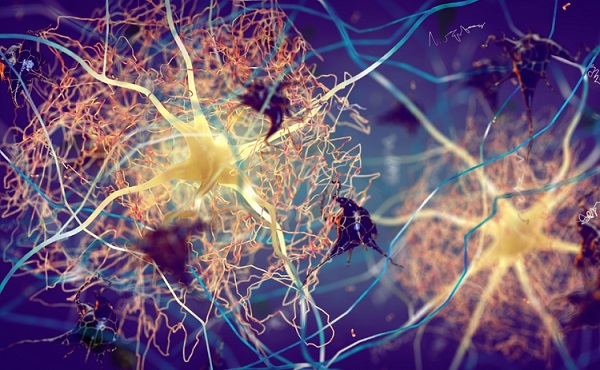Highly Accurate Universal Diagnostic Blood Test Detects Alzheimer's Disease and Mild Cognitive Impairment
Posted on 20 Feb 2024
Alzheimer's disease (AD) currently affects over 50 million people globally. A key characteristic of AD is the build-up of harmful amyloid beta (Aβ) in the brain, which impairs and destroys brain cells. This results in progressive memory loss, cognitive decline, and difficulties with everyday tasks and communication. The recent authorization of the AD medication Lecanemab, which targets mild cognitive impairment (MCI) or mild AD-related dementia with high Aβ levels in the brain, provides new hope. However, most individuals with these conditions remain undiagnosed and untreated. This is largely due to the difficulties in early diagnosis, as increased Aβ levels are typically only measurable through expensive brain imaging or invasive procedures. Additionally, diagnosis is largely based on clinical observation of symptoms that appear 10-20 years after the onset of the disease. By this stage, the disease is often advanced and challenging to treat. Now, a breakthrough has been made with the development of a simple blood test that can accurately identify individuals with MCI and mild AD, as well as detect increased Aβ in the brain, offering a transformative approach to AD diagnosis and treatment.
An international team led by the Hong Kong University of Science and Technology (HKUST, Hong Kong) has developed an innovative blood test that can detect AD and MCI early with remarkable accuracy rates of over 96% and 87%, respectively. This test is effective across different ethnic groups, providing a universal solution for diagnosing and managing AD. In a multinational study with participants from Chinese and European backgrounds, the research team confirmed the test's effectiveness in distinguishing individuals with AD and MCI from those without cognitive impairments, as well as its ability to detect brain amyloid pathology. The findings underscore the test’s potential for broad application across various ethnic and regional groups.

Unlike current blood tests that typically focus on a single biomarker to indicate brain pathology, this new test measures levels of 21 proteins simultaneously. This approach reveals alterations in multiple critical biological pathways, leading to more precise classification of AD and MCI, and better monitoring of disease progression. By providing a comprehensive AD profile for each individual, this test paves the way for personalized treatment strategies, known as precision medicine, potentially revolutionizing AD diagnosis and management.
"Our blood test heralds a new era of simple, effective, and less invasive diagnostics, and by expanding the scope of our research to include diverse populations, we have taken a crucial step towards making our test a universally applicable tool for AD diagnosis," said Prof. Nancy IP from HKUST who led the team. "Our test can also be used to screen suitable individuals for specific drug treatments in clinical studies, and closely monitor disease progression and drug responses. In the future, it may also facilitate the development of personalized treatments, by shedding light on the molecular underpinnings of AD that vary from person to person and between ethnicities."
Related Links:
HKUST












